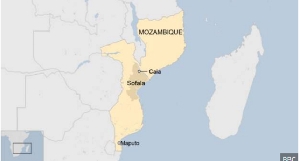Business News of Friday, 10 November 2017
Source: ghananewsagency.org
Issuance of energy sector bond is a success - Technical Advisors
 The energy bond programme has a five-year expiry
The energy bond programme has a five-year expiry
The Fidelity Bank joint technical advisors to the issuance of the energy sector bond say the issuance of the bond witnessed a tremendous success recording GH¢4.7 billion out of the GH¢6 billion target, representing 85 percent subscription.
Addressing the media in Accra on Thursday to respond to some concerns raised by a section of the public, Edwin Effah, a Technical Advisor, said the bond was issued by ESLA PLC, a special purpose vehicle, to raise funds to pay the GH¢10 billion energy debts.
He said the seven-year bond was oversubscribed at GH¢2.529 billion above the target of GH¢2.4 billion at an interest of 19 percent while the 10-year bond closed with a bid of GH?2.79 billion relative to the target of GH?3.6 billion.
Mr Effah said out of the amount, GH¢2.29 billion was accepted by the ESLA PLC at a price of 19.5 percent.
He said in total, the bond issuer received bids of GH¢5.32 billion (GH¢2.529 billion for the seven-year bond and GH¢2.79 for the 10-year bond).
He noted that the formation of the ESLA PLC was an innovative initiative in Africa with no recourse to government.
According to him, it was a standard structure that is used in most developed countries to ensure an independent and transparent administration of levies or sources of income for purposes of debts payment and other strategic projects.
Mr Leonard Gikunno, also a technical advisor, said the energy bond programme had a five-year expiry and with this flexibility, ESLA PLC could go to the financial market at any period to draw more funds from prospective investors to meet the GHC 6 billion ceiling.
He said the bond was part of a broader set of initiatives by the government to raise money outside of its fiscal space to engender sustainable economic growth.
Mr Gikunno averred that ultimately, the bond would help the country resolve the high non-performing loans within the banking sector and provide liquidity to the banks to allow them provide credit to businesses for expansion and create jobs for the teeming unemployed youth.
The energy sector debts, otherwise known as the legacy debts, came about as result of the country’s over-reliance on thermal power from 2010 to 2015, which compelled the Volta River Authority (VRA) to import crude oil at the world market price of 120 dollars per barrel.
During this period, about 20 commercial banks provided loans to VRA, Electricity Company of Ghana and other power producers to import crude oil and natural gas for power generation.
However, these State-Owned Companies (SOEs) could not repay the loans within the specified period to the banks due to the depreciation of the local currency, the Cedi, therefore piling up the debt stock.
In view of this, the power generation companies could not open new letters of credit to support the financing of their operations, which disrupted their operation and affected power supply thereby plunging the country into a long period of power crisis.
Therefore, in a bid to address these challenges in the energy sector, Parliament promulgated the Energy Sector Levy Act (ESLA) in 2015, to charge specific levies to pay the debts.
The levies were independently administered outside the government’s consolidated fund, with the Ministry of Finance expected to report on it periodically to Parliament.
The Energy Sector Levy Act helped generate receivables for the energy debts management and repayment designated as Energy Debt Recovery Levy (EDR Levy), which in 2016 alone generated GH?1.28 billion.
On the back of the ESLA, Government through the Ministry of Finance invited proposals from local financial institutions and their associates to structure and securitize the EDR levies for the permanent resolution of the energy debts on a long-term basis.
This process necessitated the formation and incorporation of a special purpose vehicle known as ESLA PLC with no recourse to Government in order to source funding from the local financial market to offset the debts once and for all.











